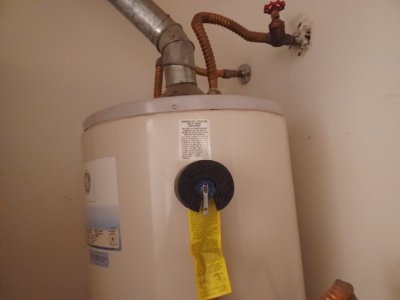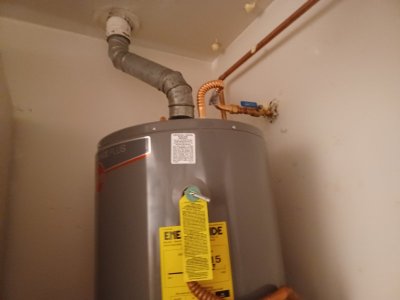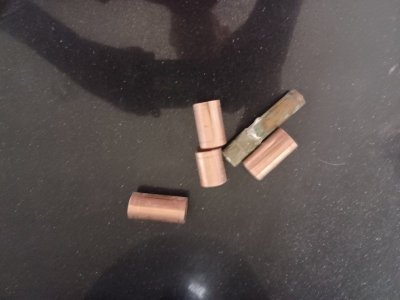Knight
Well-known Member
At my age I think this will be the last of what I'm capable of doing. Getting that 145lb. water heater in place was a struggle. Started last week completed Today. Had the tools needed so cost of water heater & miscellanious was all needed.
Water Heater $600.00
20ft. copper pipe $109.
Fittings $74.00
Silver solder/flux kit $36.00
total $819.00
pic. #1. Old heater & shut off
pic. #2. New heater & shut off
pic. #3. Waste left over. 5 cuts to get connections joints to right length.
As an extra for convenience I modified the hot water delivery to one of our showers. I put a Tee in the hot water delivery line. I don't know how our home was plumbed, but for hot water piped thu a 1/2" copper pipe to get to the shower it took whated seemed like forever. Now with a short 3/4" supply to the 1/2" delivery side to the valve it takes only seconds & with great pressure.
Water Heater $600.00
20ft. copper pipe $109.
Fittings $74.00
Silver solder/flux kit $36.00
total $819.00
pic. #1. Old heater & shut off
pic. #2. New heater & shut off
pic. #3. Waste left over. 5 cuts to get connections joints to right length.
As an extra for convenience I modified the hot water delivery to one of our showers. I put a Tee in the hot water delivery line. I don't know how our home was plumbed, but for hot water piped thu a 1/2" copper pipe to get to the shower it took whated seemed like forever. Now with a short 3/4" supply to the 1/2" delivery side to the valve it takes only seconds & with great pressure.




